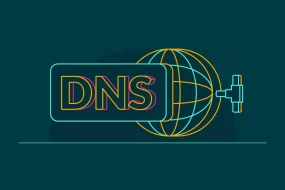In the realm of computer security, the objective is clear: to defend against unauthorized access, prevent data breaches, and ensure the confidentiality, integrity, and availability of information. To achieve these goals, it is vital to implement a robust security framework that encompasses various layers of protection. This involves a combination of proactive measures, such as strong authentication protocols, encryption techniques, and comprehensive security policies.
The Importance of Computer Security
Safeguarding Confidential Information
In an age where personal and sensitive data is shared online more than ever, safeguarding confidential information is of utmost importance. Cybercriminals are constantly devising new techniques to exploit vulnerabilities and gain unauthorized access to personal and financial data. Through targeted attacks, they aim to steal identities, perpetrate fraud, and cause irreparable harm. By prioritizing computer security, individuals and organizations can mitigate these risks and protect their valuable data from falling into the wrong hands.
Protecting Against Malware and Viruses
Malware and viruses pose a significant threat to computer systems, wreaking havoc on both personal and professional fronts. These malicious software programs can infiltrate your system, disrupt operations, and compromise sensitive information. Implementing robust antivirus software, regularly updating operating systems, and practicing safe browsing habits are effective strategies to combat these threats.
Preventing Data Breaches
Data breaches have become alarmingly common in recent years, impacting organizations across various industries. These incidents not only result in financial losses but also damage the reputation and trust of the affected entities. By adopting stringent security measures, such as regular vulnerability assessments, secure data storage, and access control mechanisms, organizations can significantly reduce the risk of data breaches.
Mitigating Social Engineering Attacks
Social engineering attacks rely on manipulating human psychology to gain unauthorized access to systems or information. Phishing emails, deceptive phone calls, and impersonation tactics are just a few examples of how cybercriminals exploit human vulnerabilities. Educating individuals about the latest social engineering techniques, promoting awareness, and implementing strict security protocols can help mitigate the impact of these attacks.
Ensuring Business Continuity
In addition to protecting sensitive information, computer security plays a vital role in ensuring business continuity. A well-prepared organization can swiftly recover from security incidents and minimize disruptions to its operations. Implementing comprehensive backup and disaster recovery plans, conducting regular security audits, and establishing incident response procedures are critical steps towards maintaining business continuity in the face of potential security threats.
Common Computer Security FAQs
1. How often should I update my passwords?
Regularly updating passwords is essential to maintain robust security. It is recommended to change passwords every three to six months and avoid using the same password across multiple accounts. Additionally, strong passwords should be employed, combining uppercase and lowercase letters, numbers, and special characters.
2. What are the essential components of a strong cybersecurity framework?
A strong cybersecurity framework comprises several key components, including network security, endpoint protection, data encryption, access control mechanisms, regular security audits, employee training programs, and incident response plans.
3. How can I protect my home network from potential threats?
To protect your home network, ensure you have a strong and unique password for your Wi-Fi router. Enable network encryption, such as WPA2, to secure your wireless communications. Regularly update your router’s firmware and use a firewall to filter incoming traffic. It is also advisable to disable remote management features unless necessary.
4. What is two-factor authentication, and why is it important?
Two-factor authentication (2FA) adds an extra layer of security to your online accounts. It requires users to provide two forms of verification: something they know (password) and something they possess (e.g., a unique code sent to their mobile device). By enabling 2FA, you significantly reduce the risk of unauthorized access to your accounts, even if your password gets compromised.
5. How can I identify and avoid phishing attacks?
Phishing attacks can be challenging to detect, but there are some telltale signs to watch for. Be cautious of emails or messages asking for personal information or financial details. Check the sender’s email address for inconsistencies or suspicious domains. Hover over links to verify their destination before clicking. Lastly, avoid downloading attachments from untrusted sources.
Top Selling Category
When it comes to computer security, one of the top-selling categories is robust antivirus software. These solutions provide real-time protection against malware, ransomware, and other malicious threats. With advanced features such as behavioral analysis and machine learning algorithms, modern antivirus software can detect and mitigate emerging threats effectively.
Top Selling Products
- Product A: With its cutting-edge threat detection capabilities, Product A offers comprehensive protection against known and emerging malware. Its intuitive interface and lightweight design make it an ideal choice for individuals and businesses alike.
- Product B: Designed to safeguard your digital life, Product B combines robust antivirus protection with advanced privacy features. Its secure browsing and real-time scanning capabilities ensure a safe online experience, protecting your sensitive information from prying eyes.
- Product C: Offering a holistic approach to computer security, Product C combines antivirus, firewall, and vulnerability scanning features into a single, user-friendly solution. Its proactive defense mechanisms detect and neutralize threats before they can cause harm.
Top Selling Brands
- Brand X: Renowned for its innovative security solutions, Brand X has consistently delivered top-notch computer security products. Their commitment to research and development ensures that users stay one step ahead of cyber threats.
- Brand Y: With a strong focus on user privacy and data protection, Brand Y has gained a reputation for providing reliable and comprehensive security solutions. Their range of products caters to both individual users and businesses, offering peace of mind in an increasingly interconnected world.
- Brand Z: Known for its robust and user-friendly security software, Brand Z has earned the trust of millions of users worldwide. Their continuous efforts to enhance threat detection and response capabilities make them a preferred choice for those seeking reliable computer security solutions.
Conclusion
As technology continues to evolve, so do the threats that accompany it. The importance of computer security cannot be overstated in today’s digital landscape. By implementing robust security measures, staying informed about the latest threats, and adopting best practices, individuals and organizations can safeguard their valuable data and ensure a secure online environment. Remember, investing in computer security is an investment in the protection of your digital assets and the preservation of your privacy. Stay vigilant, stay protected.





